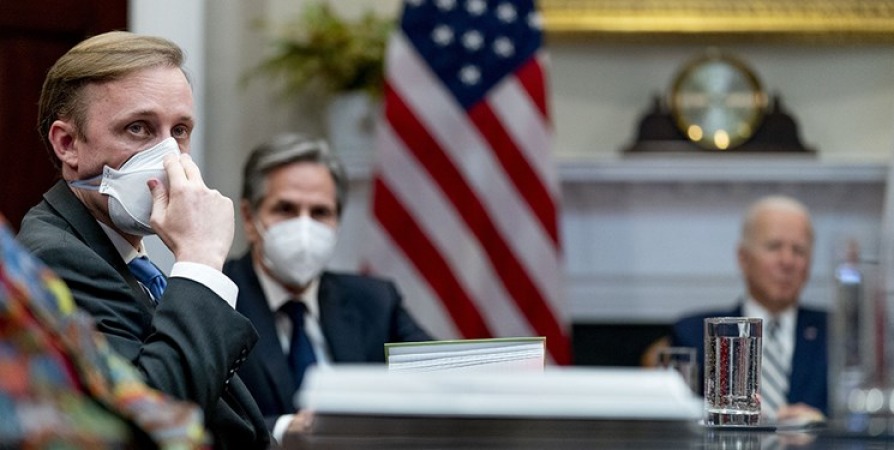Yemeni war is one of the most important yardsticks to evaluate the U.S. claims in supporting human rights and issues related to the regional as well as global peace and security at the present situation of international system.
Recent developments in Yemen and extensive war crimes committed by Saudi-led coalition against millions of civilians in the country, are crimes impossible to be committed by Saudi Arabia and UAE without the green light of the U.S. Administration.
An important part of war machine of Saudi Arabia in Yemen is supplied by the U.S. a reality which is obviously taking place before the countries of the world as well as international organizations, particularly United Nations Security Council.
During nearly seven years of Yemeni war, Saudi-led coalition has made at least 24000 sorties of air raids within the framework of offensive operations, that according to official statistics, has left more than 20000 casualties and injuries among civilians.
Like Obama and Trump Administrations as the partners of Saudi-led coalition had a role in starting and intensifying of Yemeni war, Biden Democrat Administration also has played the same role in continuation of war and crimes against humanity in the country.
Joe Biden Administration took office in a situation that one of his main promises during presidential campaign was to end Yemeni war through cessation of weaponry and political support to Saudi Arabia.
While Biden was one of the main critiques of war mongering policies of Trump Administration in Yemeni dossier, but despite primary and election promises to put an end to logistical support of offensive operations of Saudis against Yemen, yet he continues to supply arms to Riyadh.
Biden’s Administration indifference against crimes and human tragedies in Yemen, is somehow considered as his partnership in crimes committed by Saudi Arabia and UAE for which the White House should assume the responsibility of its humane, economic, legal, political and military consequences.
Biden who made effort during the first few days of his presidency in late January 2021 to put an end to destructive Yemen war with deleting Ansarallah from the so-called terrorist groups, during the past few days and following the official request of UAE has ordered his security team to study the issue of restoring Ansarallah once again in the U.S. Black List!
It worth to mention after the recent operations of Yemenis deep inside the UAE territory, which was done in response to expansion of war and military activities of Abu Dhabi in Yemen, Emirati Ambassador to Washington has officially asked Biden’s Administration and the U.S. Congress to put their weight behind returning Ansarallah in the list of terrorist organizations.
The U.S. President Joe Biden having replied in a press conference to the question posed by Al-Arabia correspondent about the UAE demand to return Ansarallah in the list of terrorist groups, he said:” We are going to study the return of Houthis to terrorist list”.
In case the efforts of the U.S. Administration to return Ansarallah in the Black List called as terrorist groups materialized, it would have important consequences in the process of field, political and human, etc. developments.
Mounting economic pressures on people, expansion of drought, disease and malnutrition through intensification of Yemeni besiege and prevention of shipment of any humanitarian aids are among the most important consequences of such a measure. Today, a large part of Yemeni population is living under “Legal Government of National Salvation” which was set up in 2015 with the participation of Ansarallah. More than two third of habitable lands of Yemen, mostly in northern regions and adjacent areas to the Red Sea, is run by the Government of National Salvation.
Second consequence; is the boosting of deterrence and offensive operations of Ansarallah against Saudi and Emirati intruders. According to previous experience, listing Ansarallah in the U.S. Black List and imposition of any external pressure is not an applicable instrument to weaken Ansarallah or any other Islamic Resistance group in the region. The measure will not lead to any change in field and political equations in Yemen, but will serve as an instigating factor for intensification of strategic missile and drone operations deep inside the territory of Saudis as well as Emirati intruders too.
Third consequence; is weakening the political processes and disrupting in the path of any dialogue and counselling aimed at peaceful settlement of Yemeni Crisis. When the White House intends to put the main and the most important player of internal Yemen developments into its Black List, is a completely paradoxical measure in contrast with the U.S. and Saudi claims on political settlement of Yemeni Crisis and ending the war in the country.
Contrary to the U.S.- Zionist – Saudis instills, Ansarallah has never been a war mongering player or a terrorist group and is not in favor of the continuation of war and clashes in Yemen. Ansarallah has always declared that in case military attacks are ceased, Yemeni siege is lifted, sovereignty and territorial integrity of Yemen is respected, and any external interference is avoided in Yemeni-Yemeni dialogue, then they are ready to enter into political talks aimed at putting an end to Yemeni war.
When under different pretexts, precisely at a junction when Ansarallah is at the culmination of its field and political achievements, and recently reached to the gates of Ma’areb, the U.S. seeks for listing the important player in its Black List, and is not interpreted anything except raising impediments before political processes of Yemen. An issue which will ultimately be detrimental to Saudi Arabia and UAE.










0 Comments